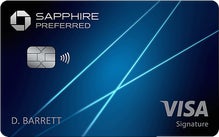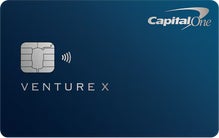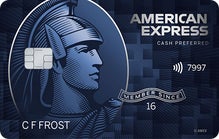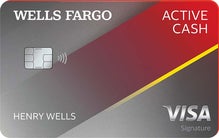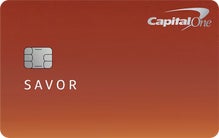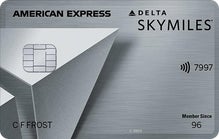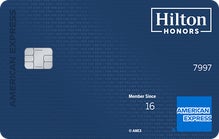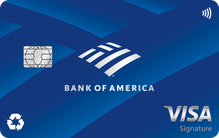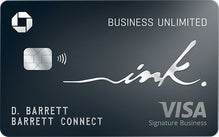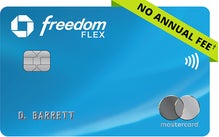Best credit card bonuses for February 2026
Advertiser Disclosure: Bankrate’s editorial team chooses and recommends the credit cards on this page. Our websites may earn compensation when a customer clicks on a link, when an application is approved, or when an account is opened. However, our recommendations and card ratings are produced independently without influence by advertising partnerships with issuers.
Filter by
Showing 14 results
Limited time offer
$250 Capital One Travel Credit
Best travel bonus for low annual fee
on Capital One's secure site
See Rates & FeesIntro offer
Enjoy a $250 travel credit & earn 75K bonus miles
Rewards rate
2X miles - 5X miles
Annual fee
$95
Regular APR
19.49% - 28.49% (Variable)
Why you'll like this: It offers a solid sign-up bonus, great ongoing rewards rates and flexibility, so it's a terrific starter travel card.
Reward Details
What you should know
Card Details
Apply with confidence
By applying, you can see if you're approved before impacting your credit
Best luxury card bonus for airfare
on American Express's secure site
See Rates & Fees, Terms ApplyIntro offer
As High As 175,000 points. Find Out Your Offer.
Rewards rate
5X
Annual fee
$895
APR
See Pay Over Time APR
Why you'll like this: It boasts perhaps the most valuable perks and welcome bonus you can potentially get on a travel rewards card.
Reward Details
What you should know
Card Details
Best bonus for travel or cash back (low annual fee)
on Chase's secure site
See Rates & FeesIntro offer
75,000 bonus points
Rewards rate
1x - 5x
Annual fee
$95
Regular APR
19.24% - 27.49% Variable
Why you'll like this: Since Chase points hold a high value whether you redeem for travel or cash back, this card is ideal for beginners and occasional travelers.
Reward Details
What you should know
Card Details
Best luxury card bonus for travel or cash back
on Chase's secure site
See Rates & FeesIntro offer
125,000 bonus points
Rewards Rate
1x - 8x
Annual fee
$795
Regular APR
19.49% - 27.99% Variable
Why you'll like this: The bonus is not only accessible for a luxury card, but it could also be one of the best toward cash back, issuer travel or transfer partners.
Reward Details
What you should know
Card Details
Best travel bonus + ongoing value
on Capital One's secure site
See Rates & FeesIntro offer
Earn 75,000 bonus miles
Rewards rate
2 Miles - 10 Miles
Annual fee
$395
Regular APR
19.49% - 28.49% (Variable)
Why you'll like this: Its streamlined rewards rates, sign-up bonus value and travel perks could make it a better deal than other premium travel cards.
Reward Details
What you should know
Card Details
Apply with confidence
By applying, you can see if you're approved before impacting your credit
Best premium card cash bonus
on American Express's secure site
See Rates & Fees, Terms ApplyIntro offer
Earn $250
Rewards rate
1% - 6%
Annual fee
$0 intro annual fee for the first year, then $95.
APR
19.49%-28.49% Variable
Why you'll like this: It boasts an exceptional intro bonus and a top rewards rate in key everyday categories.
Reward Details
What you should know
Card Details
Best for cash bonus + flat-rate rewards
on Wells Fargo's secure site
See Rates & FeesIntro offer
$200 cash rewards
Rewards rate
2%
Annual fee
$0
Regular APR
18.49%, 24.49%, or 28.49% Variable APR
Why you'll like this: The card’s simplicity gives you a lot of flexibility in earning rewards and progressing toward the welcome offer.
Reward Details
What you should know
Card Details
Best for cash bonus + food rewards
on Capital One's secure site
See Rates & FeesIntro offer
Earn a one-time $200 cash bonus
Rewards rate
1% - 8%
Annual fee
$0
Regular APR
18.49% - 28.49% (Variable)
Why you'll like this: Its platter of bonus categories offers some of the best rates you can get on grocery and dining purchases.
Reward Details
What you should know
Card Details
Best airline bonus
on American Express's secure site
See Rates & Fees, Terms ApplyIntro offer
Earn up to 100,000 Bonus Miles
Rewards Rate
1X - 3X
Annual fee
$350
APR
19.49%-28.49% Variable
Why you'll like this: The accessible intro bonus is not only one of the most valuable airline card offers — it’s one of the best rewards card offers in general.
Reward Details
What you should know
Card Details
Best starter airline card bonus
on Chase's secure site
See Rates & FeesIntro offer
Earn 50,000 points.
Rewards Rate
1X - 2X
Annual fee
$99
Regular APR
19.24% - 27.74% Variable
Why you'll like this: Its intro bonus offers a terrific return on spend and a nice boost toward the Companion Pass, which could save you thousands on Southwest flights.
Reward Details
What you should know
Card Details
Apply with confidence
By applying, you can see if you're approved before impacting your credit
Best hotel bonus
on American Express's secure site
See Rates & Fees, Terms ApplyIntro offer
Earn 130,000 Hilton Honors Bonus Points
Rewards rate
3X - 12X
Annual fee
$150
APR
19.49%-28.49% Variable
Why you'll like this: You can score a great intro offer, lucrative everyday rewards and valuable Hilton perks at a reasonable cost.
Reward Details
What you should know
Card Details
Best student card bonus
Intro offer
25,000 points
Rewards Rate
1.5X - 3X
Annual fee
$0
Regular APR
17.49% - 27.49% Variable APR on purchases and balance transfers
Why you'll like this: In addition to its beginner-friendly flat rewards rate, it gives students a chance at one of the most valuable no-annual-fee card intro bonuses.
Reward Details
What you should know
Card Details
Best business cash back bonus
on Chase's secure site
See Rates & FeesIntro offer
Earn $750 bonus cash back
Rewards Rate
1.5%
Annual fee
$0
Regular APR
16.74% - 24.74% Variable
Why you'll like this: It boasts a streamlined rewards program and a more valuable intro bonus than most no-annual-fee business cards.
Reward Details
What you should know
Card Details
Best for cash bonus + category variety
Intro offer
$200 bonus
Rewards rate
1% - 5%
Annual fee
$0
Regular APR
18.24% - 27.74% Variable
Why you'll like this: Its combo of year-round and rotating bonus categories gives it more ongoing value than other rotating category cards.
Reward Details
What you should know
Remove a card to add another to compare
Remove a card to add another to compare
Compare Bankrate's top credit card bonus offers
| Card | Welcome offer | Annual fee | Bankrate review score |
|---|---|---|---|
|
Intro Offer: Enjoy a $250 travel credit & earn 75K bonus miles
LIMITED-TIME OFFER: Enjoy $250 to use on Capital One Travel in your first cardholder year, plus earn 75,000 bonus miles once you spend $4,000 on purchases within the first 3 months from account opening - that’s equal to $1,000 in travel |
|
5.0 / 5 Our writers, editors and industry experts score credit cards based on a variety of factors including card features, bonus offers and independent research. Credit card issuers have no say or influence on how we rate cards.
Apply now
on Capital One's secure site
|
|
|
Intro Offer: As High As 175,000 points. Find Out Your Offer.
You may be eligible for as high as 175,000 Membership Rewards® Points after spending $12,000 in eligible purchases on your new Card in your first 6 months of Membership. Welcome offers vary and you may not be eligible for an offer. |
|
4.8 / 5 Our writers, editors and industry experts score credit cards based on a variety of factors including card features, bonus offers and independent research. Credit card issuers have no say or influence on how we rate cards.
Apply now
on American Express's secure site
See Rates & Fees
, Terms Apply
|
|
|
Intro Offer: 75,000 bonus points
Earn 75,000 bonus points after you spend $5,000 on purchases in the first 3 months from account opening. |
|
4.9 / 5 Our writers, editors and industry experts score credit cards based on a variety of factors including card features, bonus offers and independent research. Credit card issuers have no say or influence on how we rate cards.
Apply now
on Chase's secure site
|
|
|
Intro Offer: 125,000 bonus points
Earn 125,000 bonus points after you spend $6,000 on purchases in the first 3 months from account opening. |
|
4.8 / 5 Our writers, editors and industry experts score credit cards based on a variety of factors including card features, bonus offers and independent research. Credit card issuers have no say or influence on how we rate cards.
Apply now
on Chase's secure site
|
|
|
Intro Offer: Earn 75,000 bonus miles
Earn 75,000 bonus miles when you spend $4,000 on purchases in the first 3 months from account opening, equal to $750 in travel |
|
5.0 / 5 Our writers, editors and industry experts score credit cards based on a variety of factors including card features, bonus offers and independent research. Credit card issuers have no say or influence on how we rate cards.
Apply now
on Capital One's secure site
|
|
|
Intro Offer: Earn $250
Earn a $250 statement credit after you spend $3,000 in eligible purchases on your new Card within the first 6 months. |
|
4.4 / 5 Our writers, editors and industry experts score credit cards based on a variety of factors including card features, bonus offers and independent research. Credit card issuers have no say or influence on how we rate cards.
Apply now
on American Express's secure site
See Rates & Fees
, Terms Apply
|
|
|
Intro Offer: $200 cash rewards
Earn a $200 cash rewards bonus after spending $500 in purchases in the first 3 months |
|
4.3 / 5 Our writers, editors and industry experts score credit cards based on a variety of factors including card features, bonus offers and independent research. Credit card issuers have no say or influence on how we rate cards.
Apply now
on Wells Fargo's secure site
|
|
|
Intro Offer: Earn up to 100,000 Bonus Miles
Earn 80,000 Bonus Miles after you spend $4,000 in purchases with your new Card, and an additional 20,000 bonus miles after you make an additional $2,000 in purchases on the Card, both within your first 6 months. Ends 04/01/2026. |
|
4.4 / 5 Our writers, editors and industry experts score credit cards based on a variety of factors including card features, bonus offers and independent research. Credit card issuers have no say or influence on how we rate cards.
Apply now
on American Express's secure site
See Rates & Fees
, Terms Apply
|
|
|
Intro Offer: Earn 50,000 points.
Earn 50,000 bonus points after spending $1,000 on purchases in the first 3 months from account opening. |
|
4.6 / 5 Our writers, editors and industry experts score credit cards based on a variety of factors including card features, bonus offers and independent research. Credit card issuers have no say or influence on how we rate cards.
Apply now
on Chase's secure site
|
|
|
Intro Offer: Earn 130,000 Hilton Honors Bonus Points
Earn 130,000 Hilton Honors Bonus Points after you spend $3,000 in purchases on the Card in the first 6 months of Card Membership. |
|
4.7 / 5 Our writers, editors and industry experts score credit cards based on a variety of factors including card features, bonus offers and independent research. Credit card issuers have no say or influence on how we rate cards.
Apply now
on American Express's secure site
See Rates & Fees
, Terms Apply
|
|
|
Intro Offer: 25,000 points
25,000 online bonus points after you make at least $1,000 in purchases in the first 90 days of account opening - that can be a $250 statement credit toward travel purchases. |
|
3.9 / 5 Our writers, editors and industry experts score credit cards based on a variety of factors including card features, bonus offers and independent research. Credit card issuers have no say or influence on how we rate cards.
Apply now
on Bank of America's secure site
|
|
|
Intro Offer: Earn $750 bonus cash back
Earn $750 bonus cash back after you spend $6,000 on purchases in the first 3 months from account opening. |
|
4.2 / 5 Our writers, editors and industry experts score credit cards based on a variety of factors including card features, bonus offers and independent research. Credit card issuers have no say or influence on how we rate cards.
Apply now
on Chase's secure site
|
|
|
Intro Offer: $200 bonus
Earn a $200 Bonus after you spend $500 on purchases in your first 3 months from account opening |
|
|
Types of credit card bonuses
Credit card bonuses are typically distributed as additional cash back, points or miles. However, several types of welcome offers can be just as valuable — if not more so — than traditional, straightforward offers.
These offers are the most straightforward to earn and most commonly available on credit cards. They’re great if you want to earn a lump sum of points, miles or cash back for short-term spending.
No-annual-fee cards usually offer a $200 value for spending $500 to $1,000 within the first three months, and premium card bonuses often go up to $500 to $800 for $4,000 to $6,000 spent in the first three to six months. Business cards sometimes offer an even more valuable bonus with a higher spending requirement.
Co-branded airline or hotel credit cards often offer perks like airfare companion passes or free night awards for meeting bonus spending requirements. One example is the Atmos™ Rewards Ascent Visa Signature® Credit Card, which includes a $99 Companion Fare as part of its limited-time welcome offer.
Depending on how you use them, award nights and airfare companion passes can be some of the most valuable offers on the market. You may be able to squeeze thousands of dollars in value from these perks depending on how and when you utilize them.
Cards can sometimes offer boosted rewards rates in special bonus categories — or even on general spending — when you first open the card. These limited-time bonus categories usually expire after you reach a spending cap and/or after a certain time. For example, we’ve seen some cards provide a temporary 3 percent to 5 percent back on additional categories like travel, dining or groceries for up to a year.
Limited-time rewards rates can sometimes carry even more potential than the typical bonus offer depending on your spending habits and the intro rate’s spending limitations. For example, an extra 1.5 percent back on up to $20,000 in spending in your first year could be worth up to $300 in cash back.
This type of welcome offer doesn’t hold a set value. It’s based instead on your spending. These offers typically match the rewards you earn within a set period and can be especially valuable for big spenders. The best example is the Cashback Match® that Discover cards provide.
A credit card may offer an upfront bonus the moment you’re approved instead of setting a spending requirement. This offer is more common among store credit cards, which typically offer a gift card worth around $50 to $150 when you’re approved for the card, such as the Amazon gift card that comes with opening the Prime Visa card.
What makes a great credit card welcome offer?
Sign-up bonuses are some of the best tools a credit card issuer has to reel in applicants and, in the case of limited-time offers, try to push people to act fast. That’s why it’s important to carefully weigh a welcome offer beforehand to make sure you’re actually getting a good deal. To properly gauge whether a welcome offer is “great,” determine whether it’s an above-average value, fits your normal spending, suits your reward preferences and if it’s ultimately worth the effort.
And depending on your credit score, you may see an above-average welcome offer on a website or in the mail. Waiting for one of these could score patient applicants even more value. In fact, a personalized offer was the deciding factor for Bankrate editor Madison Hoehn when she finally applied to the American Express® Gold Card:
Bankrate staff insights
Help us shape the future of personal finance
We’re building something new to make rate shopping smarter and simpler. Join our waitlist to get early access, share your feedback, and unlock exclusive offers.
Priority rate alerts
Exclusive member offers
Time saving
Limited spots remaining
You're signed up!
Now, help us personalize your experience. Answering the next few questions will ensure you receive the most relevant tips and offers.
Stay tuned to see what we're building
You're all set! We're gearing up to share something big. You'll hear from us soon with what's next.
Expert tips: How to maximize your credit card bonus
To make the most of a credit card bonus, you should continue to make wise credit decisions and avoid debt to keep your balance manageable. Here are some tips to make sure you don’t overspend and outpace the value of your new bonus with interest charges and fees:
-
Plan ahead
Assess the offer’s spending requirements and the value of the points you’ll earn. That way, you’re certain you can realistically earn the bonus, and you’ll have it when you need it (like for an upcoming vacation). Bankrate’s points and miles valuations can help you understand the value of any potential bonus so you can redeem your rewards wisely.
-
Spend normally
Make timely payments and stay within your budget. If you spend beyond your means, you risk running up interest charges that can eat away at the value of your bonus or ongoing rewards.
-
Consider long-term value
New credit accounts lower your average account age, hurting your credit score. While bonuses can be attractive incentives, they shouldn’t be your sole reason for choosing a credit card. Avoid opening new cards just for the bonus unless these cards will help you in the long term. Plus, in order to weed out bonus hunters, issuers often enact application restrictions against applicants who’ve received a large number of cards in a relatively short period.
These are great pointers for almost anyone, but micromanaging your rewards for the optimum transfer partner value isn’t for everyone. To help you get the most bang for your buck, Bankrate’s principal analyst Ana Staples shares her tried-and-true approaches to getting the most value from welcome bonuses:
Bankrate staff insights
When is a sign-up bonus worth it, and should you wait for a limited-time offer?
Frequently asked questions about credit card sign-up bonuses
For Capital One products listed on this page, some of the benefits may be provided by Visa® or Mastercard® and may vary by product. See the respective Guide to Benefits for details, as terms and exclusions apply.
*The information about the Fidelity® Rewards Visa Signature® Credit Card, U.S. Bank Shopper Cash Rewards® Visa Signature® Card, U.S. Bank Cash+® Visa Signature® Card, Chase Freedom Flex® and Marriott Bonvoy Boundless® Credit Card has been collected independently by Bankrate.com. The card details have not been reviewed or approved by the card issuer.
How we choose the best credit cards with bonus offers
We select cards for “Best” credit cards pages based primarily on how cards score in our proprietary card rating system, our editors’ subjective assessment of card quality, card approval odds and credit requirements and unique card features.
Cards typically must score a minimum of 3.0 stars to be included on a “Best” list. However, we may include cards with scores below 3.0 if they have low credit requirements or unique features — despite their scores, these cards may still be among the “best” in certain categories. Card ratings are not influenced by advertisers or issuer relationships in any way.
Card selection and ordering may vary based on business considerations, including Bankrate visitor interest, site interactions and card application volume. Affiliate commissions (see how we make money), limited-time offers and a card’s general popularity in the product landscape may also influence which cards we feature on our pages and the order in which they appear. Bankrate’s editorial and business teams also strive to feature a variety of card types from various issuers.
Here’s a quick look at how our rating methodology breaks down for credit card welcome offers:
Rewards & cash back card scoring factors
-
Value 65%
-
Flexibility 15%
-
Perks 15%
-
Customer experience 5%
Business card scoring factors
-
Value 40%
-
Flexibility 20%
-
Perks 20%
-
Customer experience 20%


